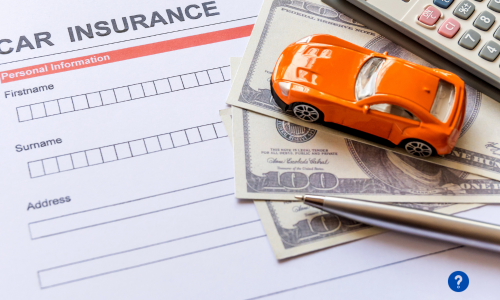Car insurance costs can vary widely based on numerous factors, from your location and driving history to the type of coverage you choose. Understanding these factors can help you find the best policy that fits your budget while providing the protection you need. Below, we’ll break down the key aspects influencing car insurance rates and provide a general overview of average costs.
1. Average Car Insurance Costs in the U.S.
The average cost of car insurance in the U.S. is approximately $1,200 to $1,500 per year for a full coverage policy. However, this can vary significantly depending on your location, age, and driving record. Here’s a general breakdown:
- Minimum Coverage: $400 to $800 per year
- Full Coverage: $1,200 to $1,800 per year
Keep in mind that these averages can fluctuate based on state laws, insurer options, and individual factors.
2. Factors That Affect Car Insurance Costs
Several key factors influence car insurance premiums. Understanding these can help you estimate what your policy might cost.
a. Location
- Car insurance rates are heavily influenced by where you live. States with higher rates of accidents, vehicle thefts, and severe weather events tend to have higher premiums.
- Urban areas typically have higher rates compared to rural areas due to increased traffic congestion and accident likelihood.
b. Age and Gender
- Young Drivers: Drivers under 25 usually face the highest premiums because they’re statistically more likely to be involved in accidents.
- Older Drivers: Those over 65 may also see higher rates as some insurers view them as higher risk.
- Gender: In certain states, insurers factor gender into pricing, with young male drivers often paying more than their female counterparts.
c. Driving History
- A clean driving record generally leads to lower rates. Accidents, tickets, and DUI convictions can significantly raise your premiums.
- Drivers with several years of no claims or accidents may qualify for discounts.
d. Vehicle Type
- Make and Model: Sports cars and luxury vehicles usually have higher premiums due to repair costs and theft risk.
- Safety Features: Vehicles with advanced safety features or high safety ratings may qualify for lower rates.
e. Credit Score
- In most states, a higher credit score can help lower car insurance rates, while a lower credit score may increase them.
- California, Hawaii, Massachusetts, and Michigan have laws that restrict or prohibit the use of credit scores in determining rates.
f. Coverage Type
- Liability-Only: Minimum coverage, which meets only the state-required liability, is the cheapest option.
- Full Coverage: This includes liability, collision, and comprehensive coverage, typically at a higher price.
- Add-Ons: Options like roadside assistance, rental car reimbursement, and uninsured/underinsured motorist coverage add to your premium.
3. Average Car Insurance Costs by State
Here’s a look at some of the average annual rates in various states for full coverage (these rates are estimates and can vary based on insurer):
- California: $1,850
- Florida: $2,300
- New York: $2,050
- Texas: $1,800
- Ohio: $1,000
- Michigan: $2,500+ (notoriously one of the most expensive states for car insurance)
4. Ways to Lower Your Car Insurance Costs
If you’re looking to reduce your car insurance premiums, consider the following tips:
- Increase Your Deductible: Opting for a higher deductible can reduce your monthly premium, but you’ll pay more out-of-pocket in the event of a claim.
- Shop Around: Get quotes from multiple insurers to compare rates and find the best deal for your coverage needs.
- Take Advantage of Discounts: Many insurers offer discounts for safe driving, bundling policies, or installing anti-theft devices. Ask your provider what discounts you may qualify for.
- Maintain a Good Credit Score: In most states, a better credit score can lead to lower premiums.
- Consider Usage-Based Insurance: If you drive infrequently, look into a usage-based policy that charges based on the miles you drive, which can result in lower costs.
5. Types of Car Insurance Coverage and Their Costs
Here’s a quick overview of the main types of car insurance coverage:
- Liability Coverage: Covers costs if you’re at fault in an accident that injures others or damages property. Minimum coverage requirements vary by state and are the most affordable option.
- Collision Coverage: Covers damage to your car from collisions, regardless of fault. Usually required for financed or leased vehicles and costs more than liability-only coverage.
- Comprehensive Coverage: Covers non-collision-related damage (e.g., theft, fire, natural disasters). Often combined with collision for full coverage policies.
- Uninsured/Underinsured Motorist Coverage: Protects you if you’re hit by a driver without adequate insurance. It’s mandatory in some states.
So…
The cost of car insurance can vary widely depending on individual circumstances. For most people, a full coverage policy averages around $1,200 to $1,500 annually, but factors like age, driving record, vehicle type, and location can greatly influence the final premium. Shopping around, taking advantage of discounts, and selecting the right coverage for your needs can help you find a policy that fits your budget while providing essential protection on the road.
If you’re in the market for car insurance, start by assessing your personal needs and comparing quotes from multiple providers to ensure you’re getting the best coverage for the best price.




